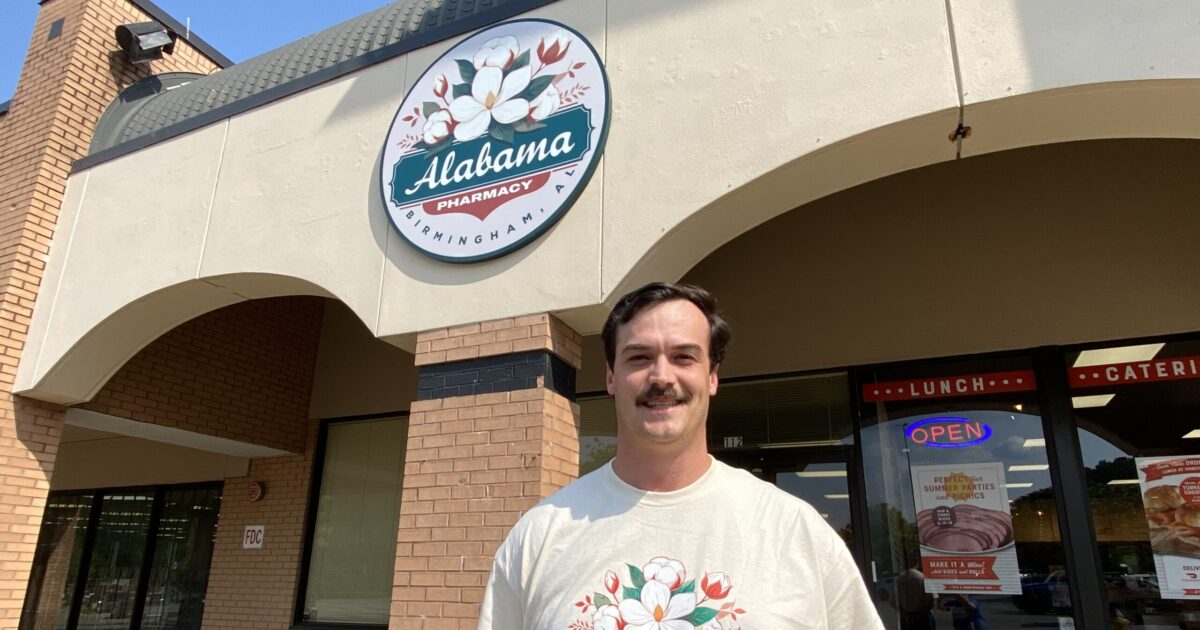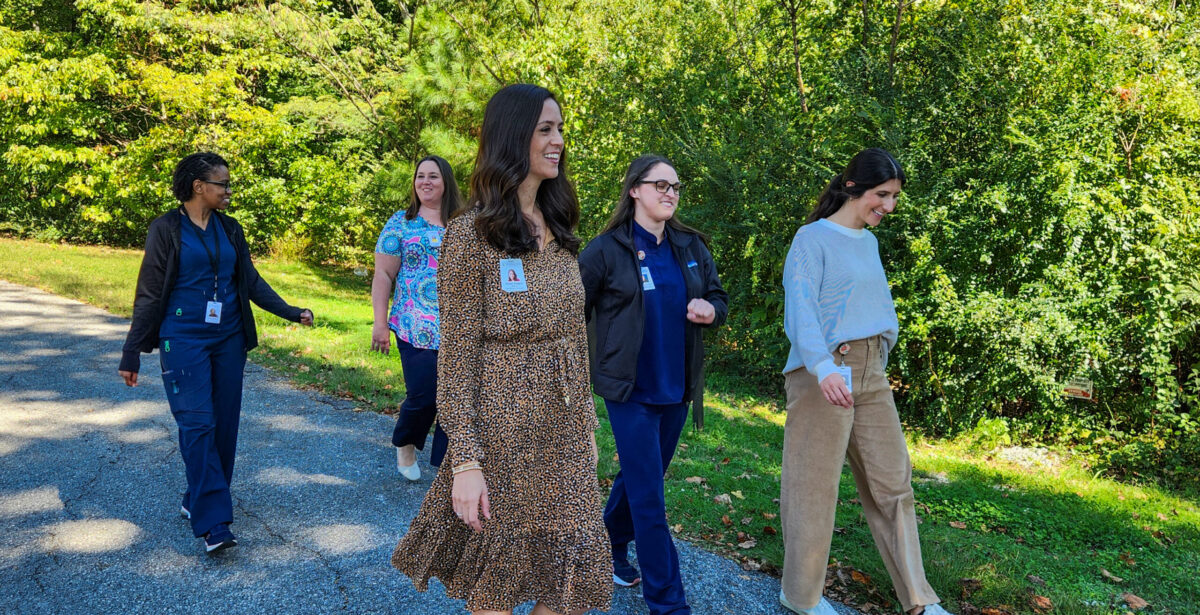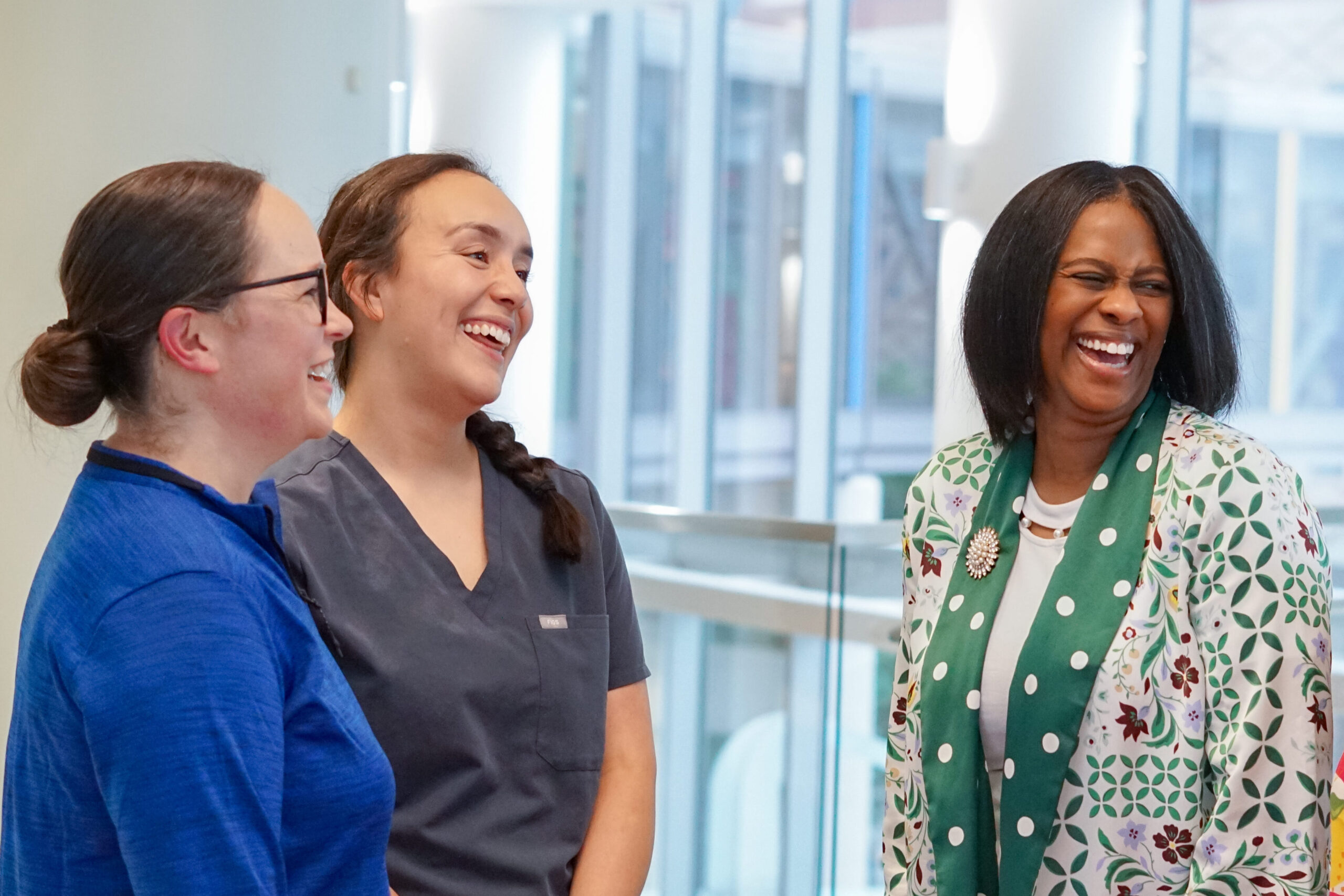Reviewed by: Patience Itson
Princeton Baptist’s been delivering babies for 100 years: what maternity care is like there now
Reading time: 8 minutes
Sponsored

Princeton Baptist Medical Center is celebrating 100 years since it first opened its doors as Birmingham Baptist Hospital. They’ve been delivering babies since 1922 and have developed a reputation, along with Brookwood Baptist Health’s other hospitals, of being a great place to have a baby. I reached out to Dr. Jesanna Cooper and Nurse-Midwife Sheila Lopez of the Simon Williamson Clinic to find out what makes maternity care at Princeton Baptist unique in 2022. Here’s what I learned.
But first, a look back at maternity care at Princeton Baptist

Princeton Baptist has been welcoming babies into the world since 1922, always with a focus on the patient’s experience.
In January, we introduced our readers to Carol Donaldson, a beloved Homewood woman who was born at Princeton Baptist (back when it was West End) and has had a lot of experience with maternity care there:
- Her late husband was born there.
- She gave birth to five children at Princeton Baptist.
- Her younger sister gave birth to triplets there.
Pat Franklin is a retired nurse who was also born at Princeton then worked in labor and delivery there for 32 years from 1989, before retiring in 2021:
“Doctors, patients and what they want certainly have changed through the years. But one thing we in nursing have tried to keep constant at Princeton is that the patient and their desires are important, along with treating every patient the same, no matter what walk of life they came from.
To me a birth is a beautiful thing. Every time I go in on a delivery, I still am in awe of it. I still get chill bumps because it’s such a special thing.
Nurses at Princeton have always wanted their patients to have the best experience possible. They want to treat them with care and respect, and give them a great birthing experience.”
Pat Franklin, retired nurse, Princeton Baptist Medical Center
Many factors go into choosing where to have a baby

When you’re expecting a baby, SO MANY factors come into play as you decide where to welcome your little one to the world:
- How easy is it to schedule and get to appointments?
- What kind of pre- and post-natal care, education and support do they offer?
- What type of birth experience would you prefer?
- What are the hospital’s C-section rates like?
If you’re wanting a low-intervention birth (with or without an epidural)—while knowing your providers can handle necessary medical interventions, including a Level III NICU—it turns out Princeton Baptist is the place to be.
And, everybody wants something a little different for their birthing experience, so check out Brookwood Baptist and Shelby Baptist for other options in the Birmingham area.
Expecting? Schedule your appointment today.
The Princeton Baptist difference when it comes to maternity care

Dr. Jesanna Cooper has been at Princeton Baptist for almost 10 years.
During that time, there have been some hard-won changes in maternity care at the hospital as well as others that have flowed more organically.
The biggest milestones were hiring the first midwife in 2016 and working toward becoming a Baby-Friendly Hospital.
Midwives are a big part of what makes Princeton Baptist special

“The main difference is the shared decision-making model, where the person giving birth and their family are the primary decision-makers. We really focus on education, empowerment and walking alongside them in their experience.
That’s the part that makes the biggest difference in our outcomes, with some of the lowest C-section and pre-term birth rates in Birmingham.”
Sheila Lopez, Nurse-Midwife, Simon Williamson Clinic, Princeton Baptist
Baby-Friendly Hospitals
Baby-Friendly is a UNICEF and World Health Organization certification for successful breastfeeding that requires following certain rules, including:
- Not giving out formula samples to encourage moms to focus on breastfeeding.
- Keeping well babies rooming with their moms.
- Encouraging skin-to-skin contact immediately after delivery, which helps regulate baby’s body temperature and promotes bonding and breastfeeding.
- For a breastfeeding mother, supplementing with formula only for medical reasons.
Over time, other cultural changes within the hospital have begun to happen, such as movement during labor, fewer interventions and lower C-section rates.
Also, doulas are allowed to provide additional support to laboring women at Princeton Baptist.
ICYMI, doulas are “trained professionals who provide continuous physical, emotional and informational support to a mother before, during and shortly after childbirth to help her achieve the healthiest, most satisfying experience possible,” according to DONA International.
Changes built on personal experience

Dr. Cooper’s interest in low-intervention birth came from her personal experience with a difficult labor and delivery with her first child, followed by challenges with breastfeeding.
When she discovered that the knowledge she had acquired on the road to becoming an OBGYN left her ill-equipped to breastfeed her own child, she realized that she had not been serving her patients in this critical area, either.
A lifelong learner, Cooper became determined to change that. Her personal and professional journey led to many changes in the way Princeton cares for moms and babies.
At the same time, she said, it’s all about options:
“When we do the medicine stuff, we want to be part of the team that makes the birth the best and safest that we can. We want it to be what you want. Some people absolutely don’t want to feel a thing and some people want to be on the floor and climbing the walls. Both turn out well—we want to support options for birthing people and help you have a good outcome.”
Dr. Jesanna Cooper, Simon Williamson Clinic, Princeton Baptist
What to expect with maternity care at Princeton Baptist

Dr. Cooper said that Princeton Baptist is a smaller program with fewer nurses, fewer staff and fewer deliveries. This means you may have one of five babies born on a given day versus 50.
“When you walk on the floor, it feels more like a small town hospital, where everybody helps each other and you get this feeling of community.”
Dr. Jesanna Cooper, Simon Williamson Clinic, Princeton Baptist
Nursing care for the whole woman

If you decide to have a baby at Princeton, the nursing staff—including midwives—cares for your physical, emotional and mental health, because let’s face it, having a baby is both amazing and a huge life change.
The word midwife literally means “with woman”—as in, the person who is with a woman during childbirth. Princeton’s team of nurse-midwives brings skillful, knowledgeable, hands-on care to women before, during and long after labor.
Intermittent monitoring for low-risk moms in labor
Rather than hooking laboring moms up to a heart monitor and confining them to a bed, this approach allows for freedom of movement and laboring in water. This helps moms cope with pain better, and also helps reduce tearing associated with birth. Intermittent monitoring has been shown to decrease rates of C-section births while still maintaining safety.
Prenatal education, breastfeeding and postpartum support

One of the things Dr. Cooper is particularly proud of is group prenatal care, with a “belly check” and other medical tests, followed by an hour of midwife-facilitated group discussion with other expecting parents.
This provides time to prepare for the birth and for breastfeeding along with a community of peers that develop strong bonds and have a group baby shower at the end.
Cooper’s practice also offers:
- Breastfeeding support with certified lactation consultants
- Two-week postpartum phone checks to screen for mental and physical health challenges as well as to learn about any breastfeeding issues requiring additional support
- Six-week postpartum in-person visits to address contraception and other issues
A stress reducing, peaceful environment for birth

Cozy rooms with special touches like dim lights, aromatherapy, twinkly lights and battery-operated candles, birthing balls and labor tubs all help give moms a sense of peace as they bring their little ones into the world.
Want to have your baby at Princeton Baptist? Schedule an appointment today.
Sponsored by:



